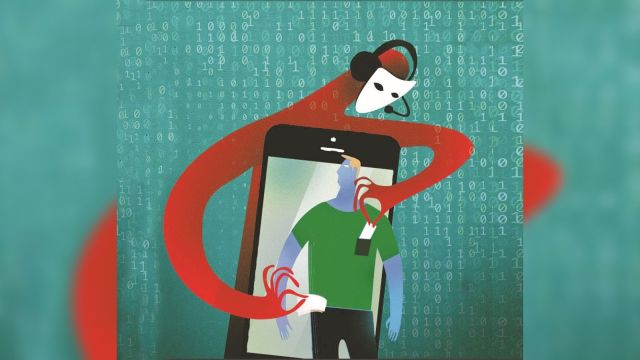Chandigarh woman duped of Rs Rs 25 lakh through digital arrest
To protect citizens from falling victim to such fraudulent schemes, the police have advised people to be cautious when receiving unexpected communications.
 To protect citizens from falling victim to such fraudulent schemes, the police have advised people to be cautious when receiving unexpected communications, whether through phone calls, emails, or messages claiming to be from law enforcement agencies.
To protect citizens from falling victim to such fraudulent schemes, the police have advised people to be cautious when receiving unexpected communications, whether through phone calls, emails, or messages claiming to be from law enforcement agencies.
In another case of digital arrest, a retired woman from the Social Welfare Department was cheated out of Rs 25 lakh by scammers posing as law enforcement officers.
This incident, reported in Sector-50’s Progressive Society, marks the third digital arrest scam reported within three days at the Cybercrime Police Station, Chandigarh.
According to the complaint lodged by the victim, Harbir Kaur, the scam unfolded on September 20 last year when she received a phone call from an unknown number. The caller identified himself as Rahul Sharma and claimed to be speaking from the Telecom Regulatory Authority of India (TRAI). He alleged that a SIM card under Harbir Kaur’s name was being used for illegal activities in Delhi. The caller stated that a criminal case had been filed against her with the Delhi Crime Branch.
Following this, Kaur received another call from a person introducing himself as Rakesh Kumar. This second caller explained the legal complications she could face. He even made a video call to make it appear as though he was speaking from a police station, convincing the woman of the seriousness of the situation.
The scammers exploited Kaur’s fear of legal consequences, gradually extracting information about her financial situation. They insisted that her available funds needed verification to ensure they were legally acquired. Under pressure, the victim broke her fixed deposit (FD) and transferred the amount as instructed. Over two days, on September 20 and 21, Kaur deposited a total of Rs 25 lakh into different bank accounts, including Rs 10 lakh in one transaction and Rs 7.5 lakh each in two subsequent transactions.
How to protect oneself from digital arrests?
The Cybercrime Cell has also issued a warning to the public regarding a new type of scam involving fake digital arrests.
According to the police, scammers are impersonating police officers or law enforcement officials to deceive people into disclosing personal information, making financial transactions, or sharing confidential data. These fraudsters use advanced technologies and social engineering tactics to make their scams appear credible, creating a sense of urgency and fear among victims.
To protect citizens from falling victim to such fraudulent schemes, the police have advised people to be cautious when receiving unexpected communications, whether through phone calls, emails, or messages claiming to be from law enforcement agencies.
“It is crucial to verify the identity of the person contacting you, particularly if they are requesting personal or financial information. Law enforcement agencies do not typically make unsolicited contact or demand sensitive data without proper legal procedures,” said DSP (Cyber Cell) Venkatesh.
“Scammers often use caller ID spoofing, making it appear as though they are calling from an official number. Citizens should not trust the phone number or email address alone. Instead, they should cross-check the claim by visiting the official website of the law enforcement agency. This step can help determine whether the communication is genuine or a scam,” said the DSP.
Also, legitimate law enforcement agencies do not demand payments via unconventional methods such as gift cards, wire transfers, or cryptocurrency. If someone claiming to be an official asks for payment through these means, it is a clear sign of a scam.
Furthermore, the police advised that if someone suspects that they are being contacted by a fake law enforcement official, they should cease communication immediately. Under no circumstances should they share personal information, bank account details, or login credentials over the phone or email unless they are absolutely certain of the other party’s identity, added the DSP.
Must Read



Buzzing Now


Apr 19: Latest News
- 01
- 02
- 03
- 04
- 05




















